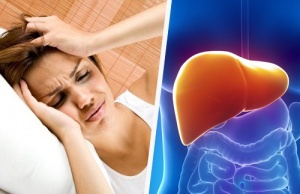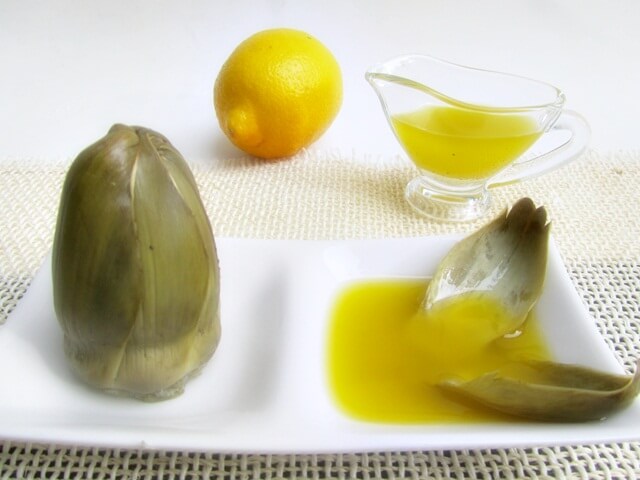Relationship Between a Headache and the Liver


Written and verified by psychologist Valeria Sabater
Headaches can have many different causes: migraines or tension, as well as pain associated with an unhealthy or damaged liver. In this article, we’ll talk about the relationship between a headache and the liver so that you can take better care of your body.
What could the link be between a headache and the liver?

When our liver is healthy, we have a good quality of life and don’t even think about this organ. But sometimes we might start experiencing digestive problems, fatigue, and other symptoms in addition to a headache. This could indicate a disorder that might be mild or serious, but the symptoms shouldn’t be ignored.
How can there be a relationship between a headache and the liver? It will be a pain that comes and goes, having moments of intensity around the temples or at the back of the head.
People often confuse it with a tension-related headache, but to determine its true cause you should note if it is accompanied by pain in the abdominal area, a feeling of fullness, discomfort, a bitter taste in the mouth, a white or yellowish coating on the tongue, or nausea.
Doctors also suggest that it’s common to suffer from insomnia at night, and difficulty waking up in the morning. For us women, we might experience very severe symptoms of PMS.
Usually what happens is that these headaches occur when the liver is unhealthy or damaged, unable to perform its normal functions of sending us the energy we our brain and limbs need. We experience pain and fatigue as a result of the relationship between a headache and the liver.
How can you care for your liver and avoid these headaches?

1. Dietary guidelines
- Avoid eating large quantities of food. It’s okay to eat until you’re full, but through several meals over the course of the day. You should never skip breakfast because it’s essential to maintain a healthy metabolism.
- Reduce your consumption of fats, fried foods, processed sugars, alcohol, salt, and dairy products.
- Increase your daily intake of fresh vegetables and fruits. It’s best to steam your vegetables to retain the nutrients.
- The best vegetables are those that have a “refreshing” effect on the body, such as green leafy vegetables with bitter flavor. Why is this? Because they help calm the liver – meaning that they have an anti-inflammatory effect that helps improve its function. One of the best foods in this category is the artichoke.
- Some herbs can be a big help, like milk thistle, ginger, dandelion, and green tea – all have cleansing properties that stimulate drainage and promote good liver function.
You may also like:
2. Behavioral and emotional guidelines
As you already know, your daily habits directly influence your liver’s health. It’s recommended to spend at least half an hour a day engaging in some kind of physical activity, or to run for 15 minutes – anything you choose, as long as you’re keeping your heart rate up.
Moreover, it’s important to keep your emotional state in check. Reduce your levels of stress and anxiety and remember to maintain your priorities: your health, happiness, and enjoyment of day-to-day life.
Always try to find a few hours for yourself to get the most out of the simple things, even if it just means being alone with your thoughts in a park or having coffee with a few friends (remember, coffee is also good for the liver).
Surround yourself with people who love you, respect you, and want the best for you. If you feel like you need to stay away from certain people, do so before your health is adversely affected!
All these seemingly small things can add up to harm your liver and offset the body’s natural balance. Don’t forget that.
Example of a proper diet to avoid these headaches

We’ll give you a simple example that you can try any old day. The following foods will help avoid the discomfort that comes from the relationship between a headache and the liver.
1. Breakfast
- A glass of warm water with the juice from half a lemon
- A slice of whole wheat bread with sugar-free blueberry jam
- Half an apple and some nuts
2. Mid-morning
- 1 apple or 1 pear
- Or a cup of green tea with whole wheat toast and a few drops of olive oil
3. Lunch
- Grilled vegetables (broccoli, Brussels sprouts…)
- Grilled white fish
- A small bowl of diced papaya
4. Snack
- A glass of water with a bowl of oatmeal and strawberries
5. Dinner
- Boiled artichokes with olive oil and vinegar
- Brown rice cooked with olive oil, a little bit of salt, and a bay leaf
- A kiwi
- Remember salads don’t make a good choice for dinner because greens take a lot of energy to digest, so save your salads for lunch.
6. An hour before bedtime
- Have a tea made with lemon balm, mint, or thyme. You’ll surely rest better.
All cited sources were thoroughly reviewed by our team to ensure their quality, reliability, currency, and validity. The bibliography of this article was considered reliable and of academic or scientific accuracy.
- Ghaus N, Bohlega S, Rezeig M. Neurological complications in liver transplantation. Journal of Neurology. 2001;248(12):1042-1048.
- Rizzoli P. Tension-Type Headache. Pain Medicine. 2017;:525-526.
- Hay J. Acute liver failure. Current Treatment Options in Gastroenterology. 2004;7(6):459-468.
- Marí Silva Mª Carolina, Alonso Gordo José María, González Praetorius Alejandro, Sánchez González María del Carmen. Síndrome febril prolongado y alteraciones hepáticas. Rev Clin Med Fam [Internet]. 2011 Jun [citado 2022 Dic 21] ; 4( 2 ): 180-183. Disponible en: http://scielo.isciii.es/scielo.php?script=sci_arttext&pid=S1699-695X2011000200017&lng=es.
- Osna NA, Donohue TM Jr, Kharbanda KK. Alcoholic Liver Disease: Pathogenesis and Current Management. Alcohol Res. 2017;38(2):147-161. PMID: 28988570; PMCID: PMC5513682.
- Macías-Rodríguez R, et al. Prescripción de ejercicio en pacientes con cirrosis: recomendaciones para la atención clínica. Revista de Gastroenterología de México 2019;84(3):326-343. Disponible en: http://www.revistagastroenterologiamexico.org/es-prescripcion-ejercicio-pacientes-con-cirrosis-articulo-S0375090619300667.
- Copa COVAP. 10 beneficios de consumir verduras y hortalizas en verano. Disponible en: https://www.copacovap.es/2020/06/24/10-beneficios-de-consumir-verduras-y-hortalizas-en-verano/.
This text is provided for informational purposes only and does not replace consultation with a professional. If in doubt, consult your specialist.








